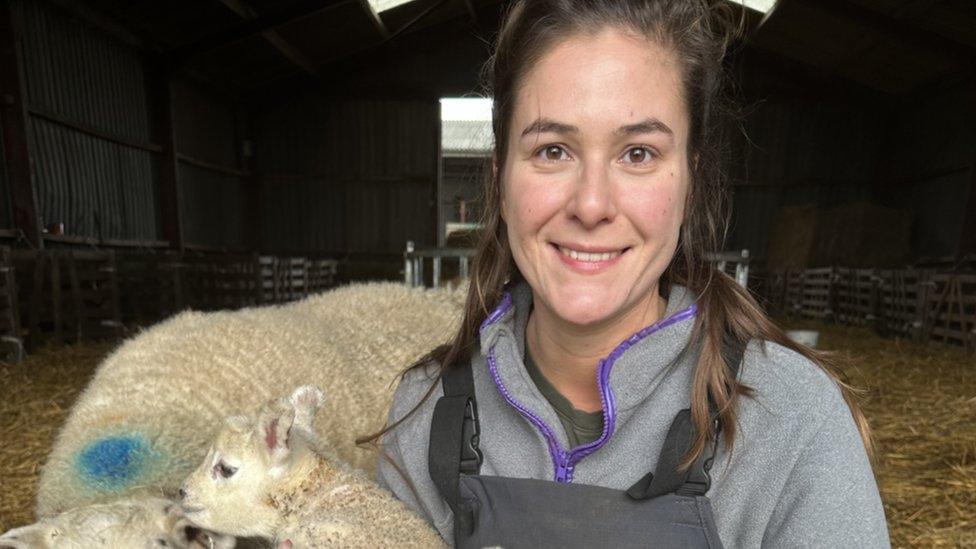'Bumper' lambing season despite wet winter
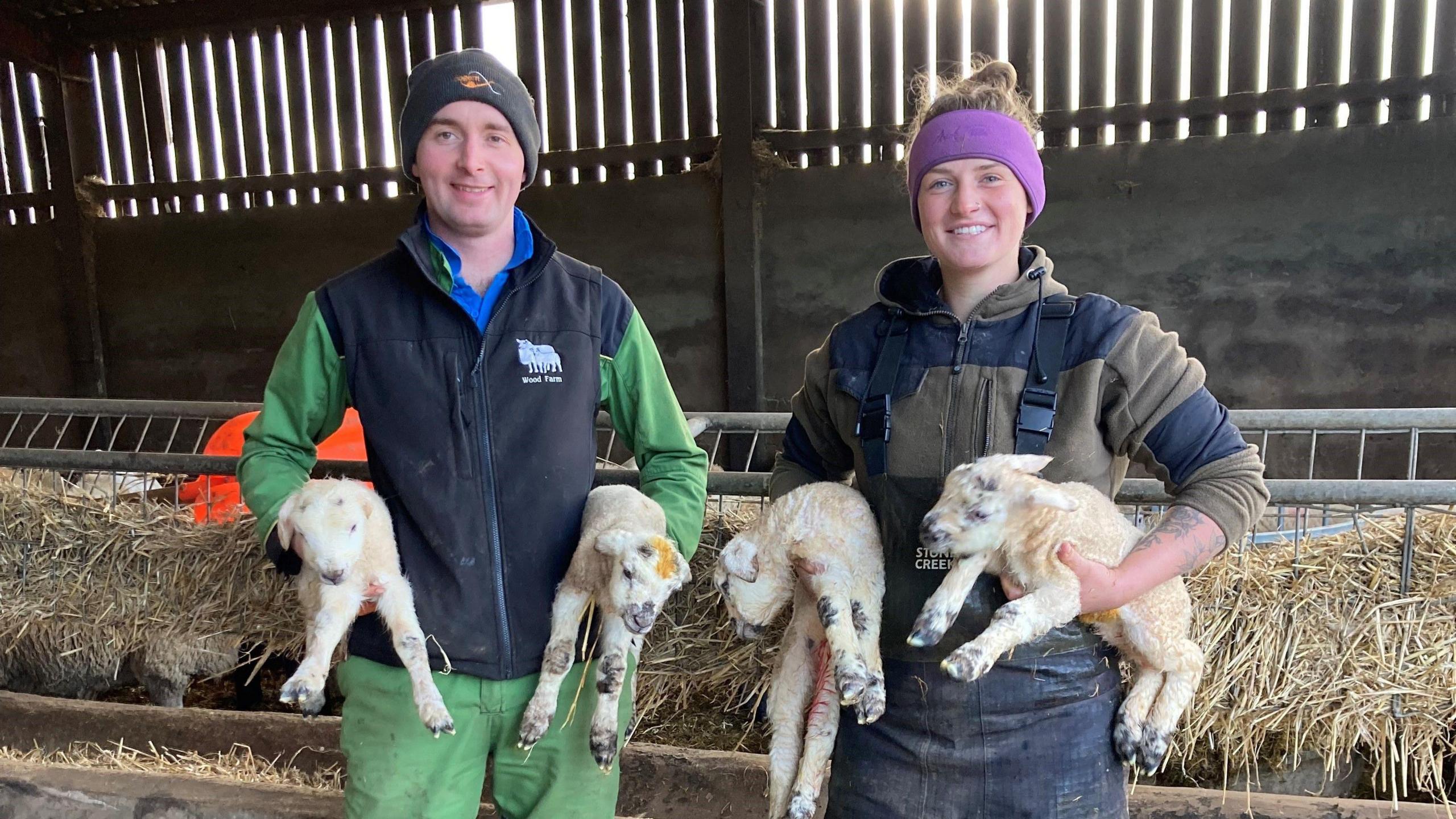
Wood Farm in Cumbria keeps a round-the-clock eye on the new arrivals
- Published
As lambing season gets into full swing, a Cumbrian farmer has reported a "bumper" year despite the wet winter.
Tom Wilson, from Wood Farm, near Carlisle, welcomed back a live-in lambing assistant to help cope with the round-the-clock demands of the two-month long season.
This year, that has included the rare birth of quads.
"It's very unusual to carry four that big and after the winter we've had," he said. "I'm surprised she even still had them in her."
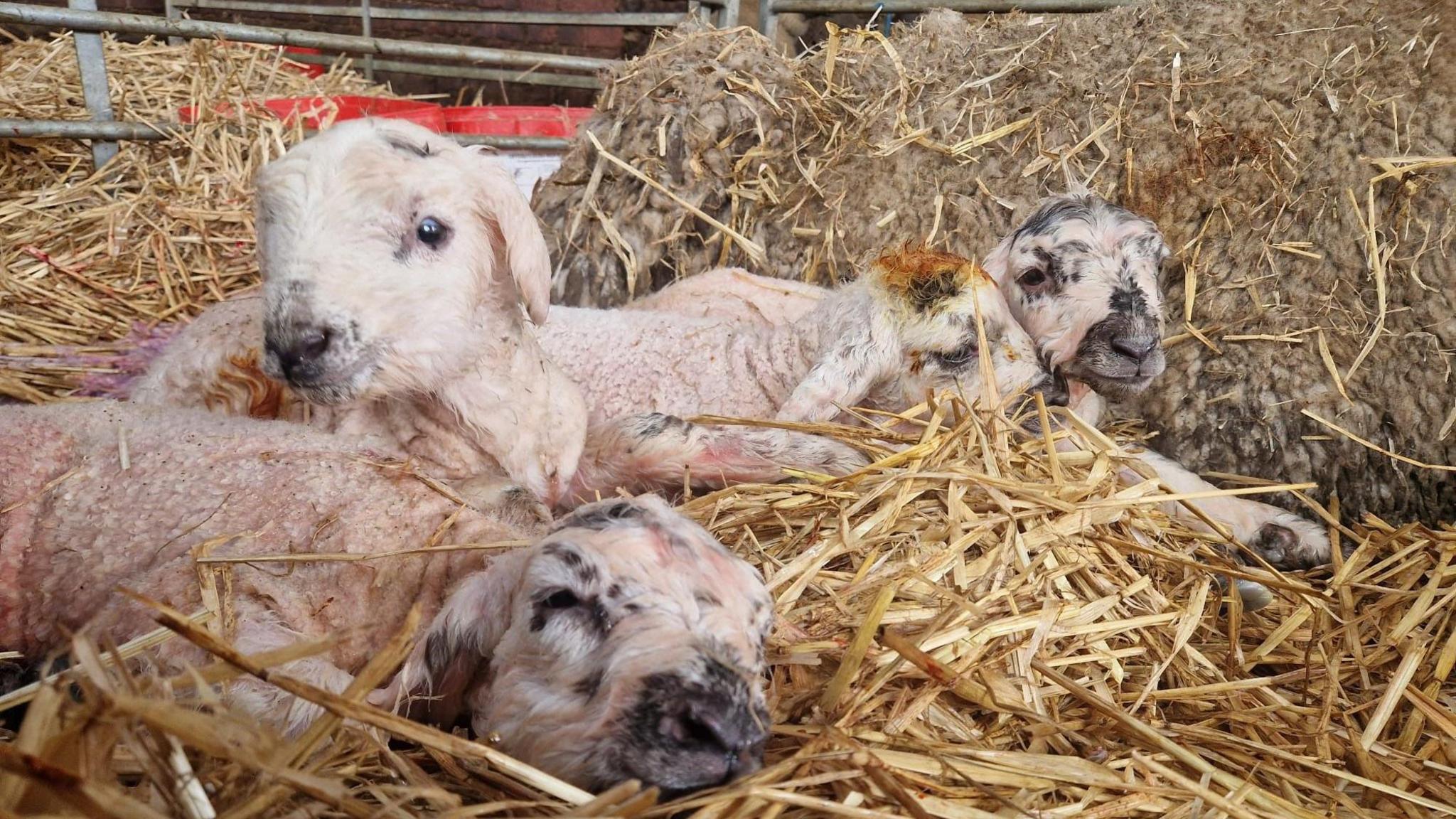
Mr Wilson described a recent set of quads born at Wood Farm as "big and healthy"
Four lambs from a single ewe is "not unheard of", a spokesperson for the National Sheep Association said, but it is certainly a far from regular occurrence.
"Ideally a ewe will give birth to two lambs as she has two teats from which to feed them.
"When an increased number of lambs are born often they are removed from the mother and either fostered on to another ewe or are reared artificially.
"Most commercial sheep farmers will experience quads on their farms every once in a while."
'Not for the faint-hearted'
March and April are peak lambing time in the UK, external, although the main season runs from February to April.
Wet weather over the winter means ewes and lambs are more prone to infection, while some fields they would usually roam in become waterlogged.
Lambing assistant Beth Menzies, who is working her second season at Wood Farm, said: "It takes its toll on you through the night, but it's so worthwhile. It's really, really rewarding."
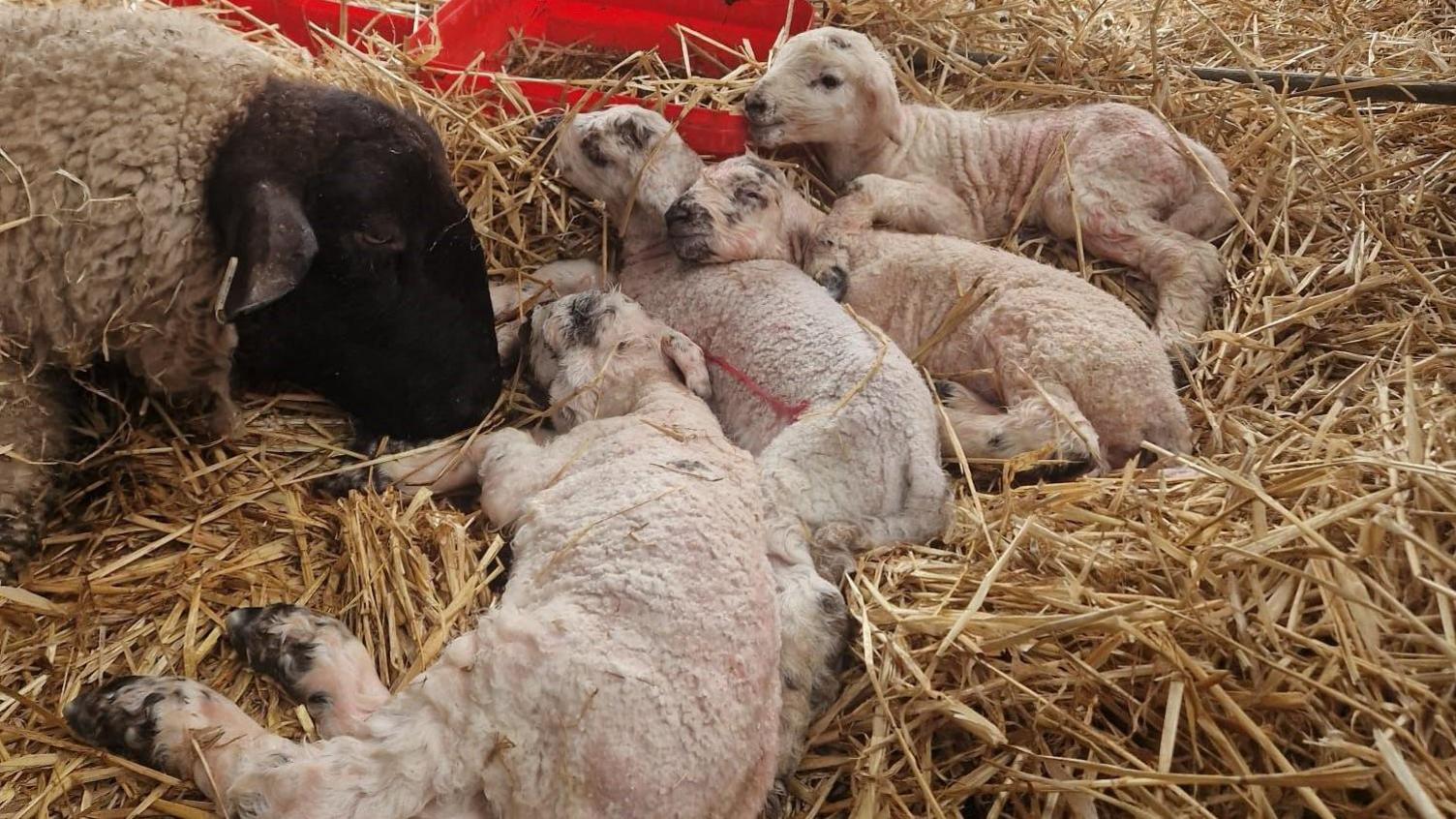
A National Sheep Association spokesperson says it is "not unheard of" for a single ewe to have four lambs
Mr Wilson said having an assistant was absolutely crucial.
"I couldn't do it without her now, definitely not, especially the numbers we do."
Ms Menzies added: "It's not for the faint-hearted.
"Farming in general, it's not a job that you should do unless you love it.
"When something does go wrong, when something doesn't make it, it does take it out of you.
"It's not about the end product, it's about that life and that moment."
Follow BBC Cumbria on X (formerly Twitter), external, Facebook, external and Instagram, external. Send your story ideas to northeastandcumbria@bbc.co.uk
Related topics
- Published16 February 2024
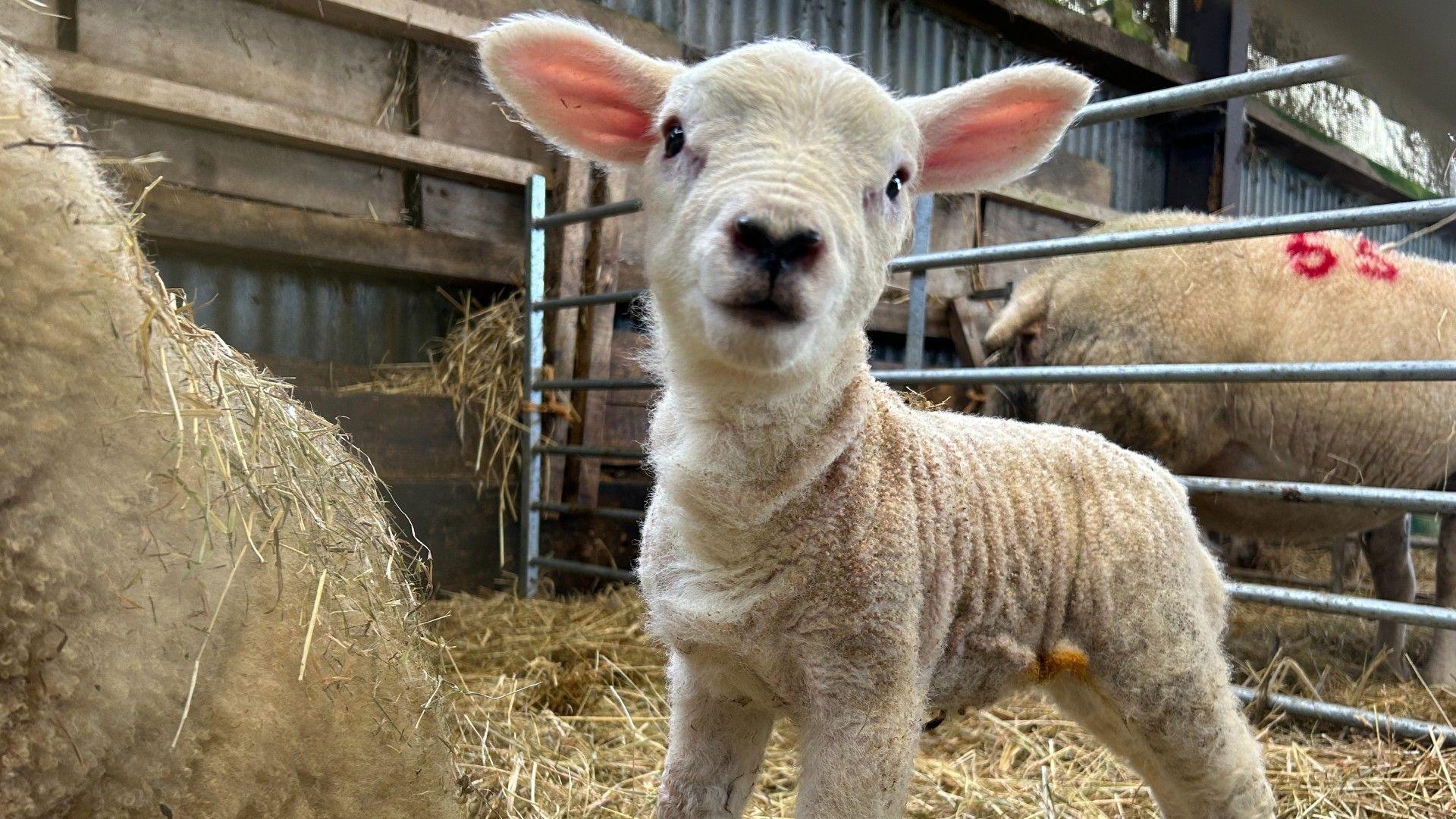
- Published22 February 2024
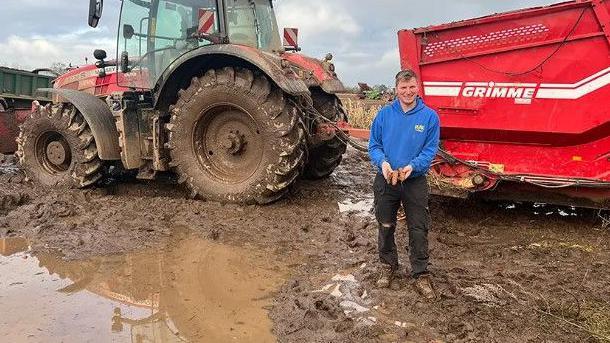
- Published13 February 2024
